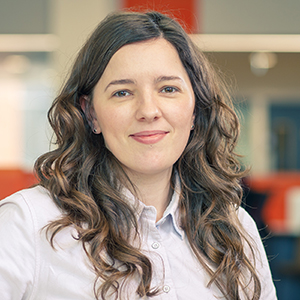Judith Long

Judith is the Research Manager for the Academic Vascular Surgical Unit at Hull University Teaching Hosiptals NHS Trust. She has over ten years project management experience working within research across health and local authority settings.
Most recently, Judith has been working with the Vascular Society (VSGBI) Research Committee and the James Lind Alliance to deliver the National Vascular Priority Setting Project.
Presentation at the WReN Scientific Meeting, Glasgow, May 2022
The Vascular James Lind Alliance Priority Setting Process; Identifying priorities for wounds research
Objectives
After attending this session, persons will be able to:
- Understand the purpose and benefits of priority setting processes
- Find out about the results of wounds related priorities as identified by patients and clincians
- Promote the research priorities for wounds and find out how to get involved
Abstract
Introduction – More research is needed to help improve treatment and delivery of care for people with vascular conditions, however resource and capacity for research is limited and funding is highly competitive. To address this issue, the Vascular Society of Great Britain and Ireland (VSGBI) in association with the James Lind Alliance (JLA) undertook a national Priority Setting Process (PSP). Vascular patients, carers and healthcare professionals were asked to identify and prioritise topics that were important to them.
Methods – A modified JLA Priority Setting Partnership was implemented in three overarching phases. 1) a clinician led survey to gather clinician research priorities, 2) a patient and carer led survey to gather patient and carer research priorities, 3) amalgamation of clinician and patient priorities and brought forward for discussion at workshops to agree a ranked list of joint research priorities.
Results – Over 1800 research questons were suibmitted by patients and clincians. Clinician and patient priorities were amalgamated into 15 wounds related priorities for discussion at a consensus workshop. The final ‘top ten’ list of wounds research priorities relate to; improving wound healing and preventing infection, personalising treatment and improving communication with clinicians.
Conclusion – The top 10 wounds related research priorities demonstrate the areas of need from the perspective of patients, carers and healthcare professionals. Researchers should now focus their efforts on addressing these important questions and funders should increase their investment to support new studies in these areas.














